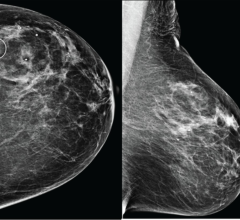June 10, 2008 – Screening for lung cancer with computed tomography (CT) may help reduce lung cancer deaths in current and former smokers, but it won’t protect them from other causes of death associated with smoking, according to a new study published in the July issue of the journal Radiology.
“Our study suggests that screening may be one way to reduce risk of death from lung cancer,” said the study’s lead author, Pamela McMahon, Ph.D., senior scientist at Massachusetts General Hospital and instructor in radiology at Harvard Medical School in Boston. “However, the number-one goal should still be to quit smoking, because it will reduce risk of death from many causes, including lung cancer.”
According to the Centers for Disease Control and Prevention, lung cancer is the leading cause of cancer death in the U.S. and is responsible for more deaths annually than breast, prostate and colon cancers combined. The American Cancer Society estimates 168,840 U.S. deaths will be attributable to lung cancer in 2008. Approximately 87 percent of lung cancers are caused by smoking. Smoking is also related to deaths from several other types of cancer, as well as heart and respiratory diseases.
For the study, researchers at Harvard and the Mayo Clinic in Rochester, Minn., set out to determine the long-term effectiveness of CT screening for lung cancer by entering data from Mayo’s helical CT screening study of 1,520 current and former smokers into the Lung Cancer Policy Model (LCPM), a comprehensive simulation model of lung cancer development, screening findings, treatment results and long-term outcomes. Using the model allowed researchers to interpret available data while waiting for long-term, randomized clinical trials to be completed.
“We used a carefully developed computer model of lung cancer to simulate individuals who smoke and/or develop lung cancers and go on to get screened or treated,” Dr. McMahon said. “It’s sort of like the computer game ‘The Sims,’ except there are no graphics, and smoking and lung cancer are the main events.”
The LCPM projections showed that, at six-year follow-up, the patients who had undergone five annual screenings had an estimated 37 percent relative increase in lung cancer detection, compared with those who had not been screened. The relative reduction in lung cancer-specific mortality was 28 percent. However, reduction in all-cause mortality was only 4 percent. Fifteen-year follow-up showed relative reductions in lung cancer-specific mortality of 15 percent and all-cause mortality of 2 percent.
“Our study fills in a piece of the puzzle but does not solve it,” Dr. McMahon said. “We are hopeful that randomized trials conducted by the National Cancer Institute will show a benefit from screening. Until then, patients should think carefully about undergoing a test that has no direct evidence of benefit.”
Source: The Radiological Society of North America, Inc. (RSNA.org/radiologyjnl)
For more information: www.RadiologyInfo.org and www.RSNA.org


 February 09, 2026
February 09, 2026 









